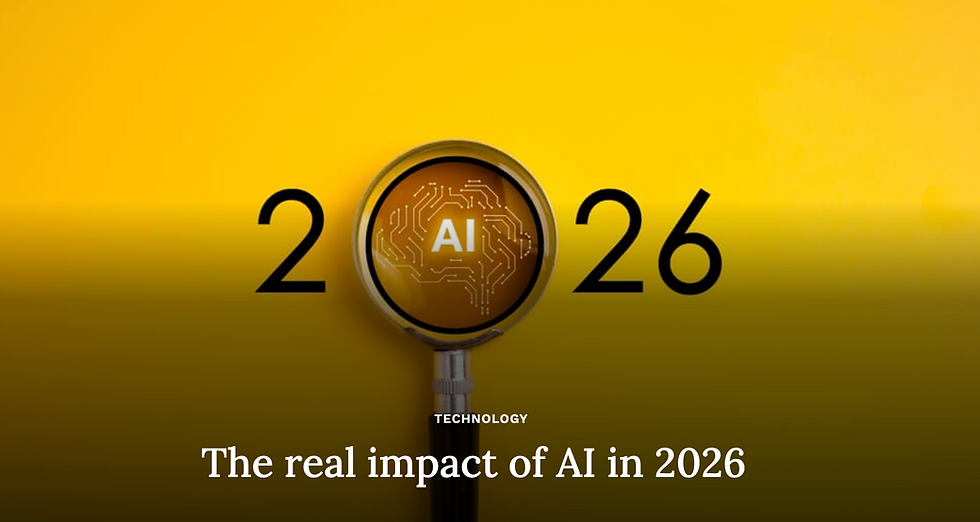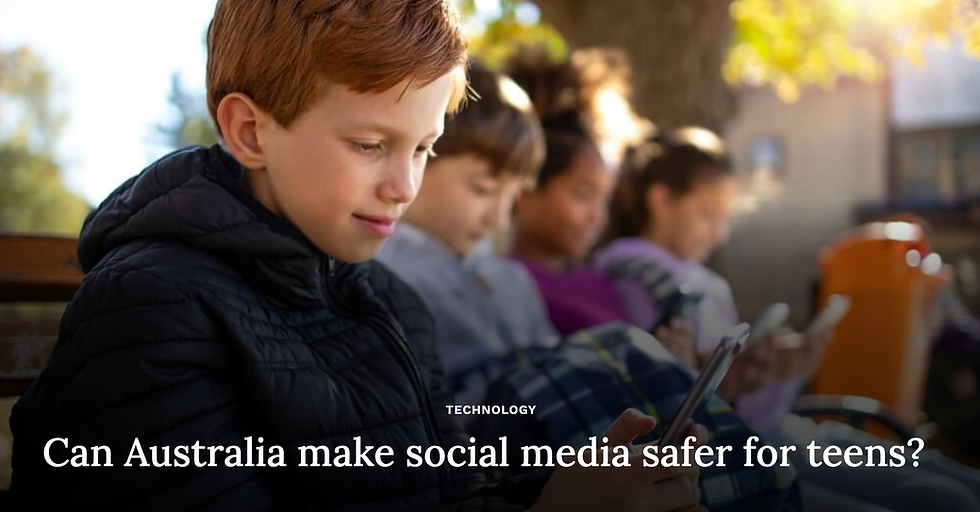Trust In Tech follow up with Prof Dr Emre Alkin
- Elise Quevedo

- Jan 12, 2021
- 6 min read

It's been a month since I released the article "What does Trust In Tech Mean"
After the great feedback received from the takeaways from some of my fellow global thought leaders, I thought we needed to expand on a few of those, to kick off the year.
As I always say, to trust tech, we need to trust humans first, how we think and how we behave as an individual and as a society will be some of the keys to continue to build trust and transparency in this digital world.
For those who missed the event Trust In Tech, you now have a chance to see what some of these amazing leaders said. I kick off with fellow Global Thought Leader Prof Dr Emre Alkin.

What are some of the main challenges of AI and emerging technologies, how can society overcome it?
In the conference held in London earlier in 2019, we have discussed the world's future and artificial intelligence. I gave the following answer to a question at this event organized by Huawei: What is the biggest impediment to artificial intelligence?
Our own intelligence, of course. We adore our intelligence so deeply that we do not even value others’ intelligence, let alone the AI’s.
Apparently very impressed by my little comment, I received both a round of big applause and a big laugh. As I started to talk about far more serious matters, however, a deep silence prevailed. Governments’ and dominant conventional sectors’ “You will all be replaced by AI!” kind of approach is the biggest barrier to AI adoption today.
The reason why they are opting to take such an approach is to ensure that funds are spent according to their desire, not spent as necessary or appropriate. Governments that are deadly set on spending funds on the biggest, the largest, the deepest, or the longest Mega Projects, instead of enhancing the fiber optic infrastructure, and the business people who are impatiently waiting to sign a contract with the government for the construction of one of these mega projects, are sadly sealing young people’s fate.
Populism and nonsense politics have helped the government grow so drastically to the point that it has finally become a monster that devours everything yet its hunger cannot be satisfied. And the government along with this group of business executives are using the technology either to generate new revenues or control everything and everyone. Their aim is not to create value; they just want to do whatever they desire. Therefore, these groups of people I am talking about are those who invest in themselves, not in 5G.
These people do not obviously want society to have access to the blessings of an autonomous and anonymous world. Instead, they choose to offer “crazy projects” again with a conventional approach. Airports are so large that they make people waste their time and energy, expensive toll bridges and tunnels, nonsensical projects that may potentially cause ecological disasters are all the outcomes of this populist-authoritarian mindset.
As those who say, “I know what’s best for you! You don’t need to think about any of this at all!” to the people are usually tend to win the popular vote, only digitalization can stop such policy which is created without even needing to ask the opinion of people about a decision that will impact the human lives, the nature and all creatures living in it. In short, the only power that is able to stop this populist policy controlling everyone and everything from Central Banks to Financial Institutions is the trio of digitalization, blockchain, and cryptocurrency.
The increasing digital technologies may save us from the inadequacy of institutions that are at the disposal of the government, not of the people. Therefore, our new Mega Project should not a project that is designed nothing but to destroy forests, to pollute water, to erect buildings, and to increase the demand for unskilled labor. We must promise the young generation a future that will transform their energy and knowledge into value, not into rubles and stones.
Are we overusing the word AI from a business point of view? What are your thoughts?
I cannot say that we use too much but even at this level of usage we are lost in the definition of artificial intelligence. Maybe we need an accurate differentiation between AI and other digital operations. Time to time machine learning, cloud service, data science stand-alone, are confused with AI. Maybe we need a clear-cut definition of artificial intelligence.
Why should we trust AI?
Why shouldn’t we? We can trust artificial intelligence like we can trust each other in society. The philosophy says that “man is the error”. If you can trust somebody who can make errors eventually, we can trust artificial intelligence which makes no error in operations.

What has changed in the economy with digital inclusion? If autonomy is coming, authorities are falling down. You always mention this with central bank examples. Can you specify this for us, please?
Lately, the “authority” seems to have less influence on our lives. As even the Central Banks are trying so hard to survive, each and every aspect of autonomous and anonymous life has already started to get integrated into our lives. Considering the fact that Turkey’s first fully domestic car is designed in a way that it will not need a driver in the future, I think I would not be wrong in saying that we have started to destroy the concept of “authority” with our own hands.
Therefore, people seem to show more and more interest in cryptocurrencies while they keep questioning the money system controlled by Central Banks and other regulatory authorities. According to a new survey conducted by Statista, 1000 randomly selected people were asked the following question: "Have you ever used or had cryptocurrency?" Here are the results:
To this question which was 1000 randomly chosen people, mostly Turks answered “yes”, with 20 percent. In this grading, Turkey is followed by Brazil, Argentina, South Africa, Mexico, and Chile. Spain ranks somewhere in the middle with a “yes” percentage of 10% while the United States, UK, France, Germany, and Japan are placed near the bottom with percentages of around 3% to 6%.
So, I think I would not be wrong in saying that the demand for cryptocurrencies is running neck and neck with distrust in the financial system. I really don’t think the rise of cryptocurrency is a not a mere coincidence, an adventure of venturesome souls. We shall see how circumstances will change if the Fed decides to expand the money supply again.
You mention that the youngsters are not keen to work in conventional sectors, why? and where are they likely to work today? Are commercial jobs in danger?
There is something wrong with our approach to labor. Most of the business people still demand more vocational schools to train future employees that they will hire for low value-added positions. “Young people no longer want to work those jobs…” That’s what I’ve said to an employer who was complaining about the fact that he needs more people capable of operating a forklift.
As a matter of fact, everyone is right, in their own way. There are many employers who look for “semi-skilled workers” for jobs that don’t require a college degree. But now, they are trying to hide their real motivation by claiming that they need candidates that meet the job requirements, instead of admitting that they, in fact, need semi-qualified workers.
Almost every company that hasn’t fully completed its transition process to high technology seeks more employees. Despite the high jobless rate, the unemployed people do not want to work available jobs or jobs that are recommended for them. There are a countless number of people who are injured on the job or became a victim of workplace fatalities! Who can blame young people for not wanting his fingers to get caught in a machine, lose his life in an unsecured construction site, or join an industrial sector where he will have no future? I am in violent disagreement with people who blame candidates for choosing to work as a security officer at some shopping mall instead of working in a factory. Isn’t it only natural that these people choose a safer and more comfortable way of living? I can almost hear your answer.

What is the 1 key takeaway you would like people to remember when it comes to trust in technology?
Discussing artificial intelligence today is just like talking the art to the artists. We try to convince each other about the beauty of digital inclusion, but as a matter of fact, we are all at the same level of understanding. We are losing time and energy.
The trust in the technology panel showed us that we have to be more down to earth about the subject and be more explicit to the greater audience. The trust has to be constructed in mass, and we have to find the most effective way of communication. The revolution always comes from bottom to top. Instead of dealing with politicians maybe we have to deal with the real people on the streets, in the schools, in the neighborhood. I’m pretty sure that this is how we can build trust, this is how we can make them demand their right for more technology. It is time to move now, make a step forward, ask for what we deserve and have a say for a better future.
Thank you for your time Emre, as always very insightful.
We need to start by trusting people and the only way that we will get to have a better future in this area is by education so that we can have a better understanding of how these emerging technologies can help shape our future.
Elise Quevedo







